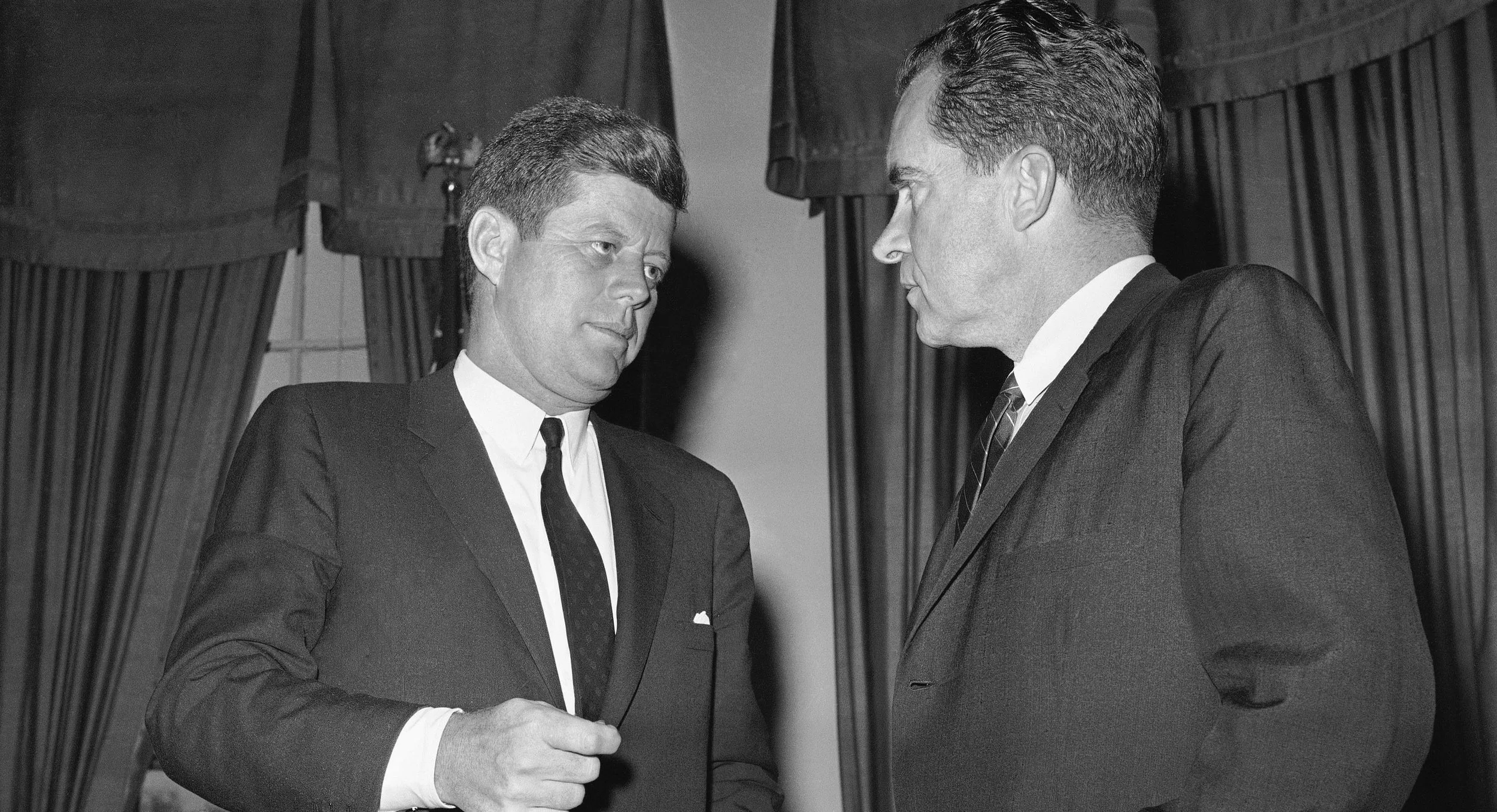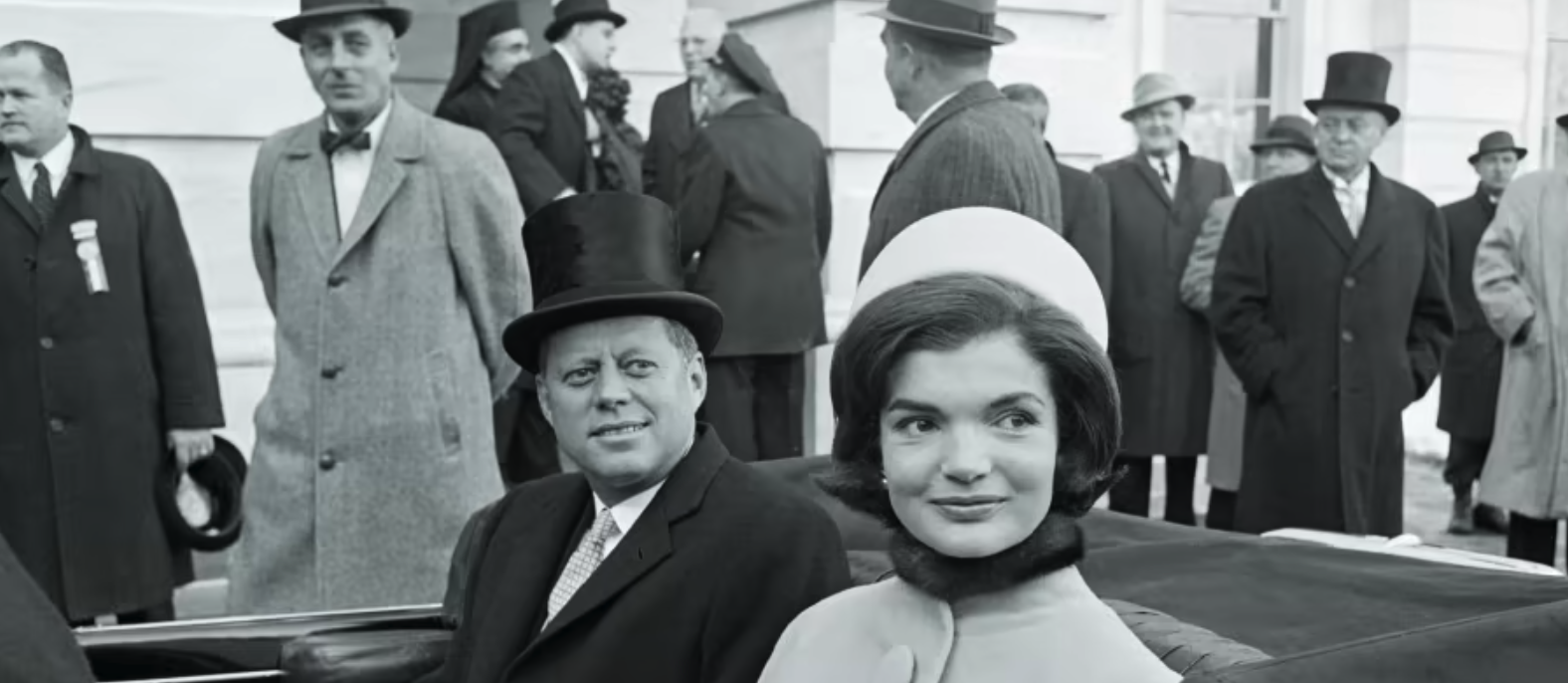Chicanery, 1960 Part VI
The Dawn of the 1960s
Kennedy and Nixon, 1960
Nixon had spent the holidays sulking, commenting to guests as they arrived at his Christmas Party that “We won, but they stole it from us.” As the proceedings began on that Wednesday, the temptation to dispute the results must have been immense, however futile it would’ve been. As “President of the Senate”, he was the first candidate for president in one hundred years to announce the results of an election in which he was defeated. A chorus of allies and supporters were still pushing him to contest the vote. The fishy, uncertainty surrounding the outcome in 1960 certainly took a toll on Nixon psychologically, and would play a big role in his downfall just over a decade later. Still, the man who would be known to future generations of Americans for his paranoia and questionable ethics stood before the legislative body of the U.S. government and made a choice. A couple weeks earlier, he’d contacted his acquaintance Earl Mazo- a Washington based reporter for the New York Herald Tribune, who had already published four parts of a planned twelve part series on election fraud- and asked him to stop because “the country couldn’t afford a constitutional crisis.” When Mazo refused, Nixon called his bosses and had him taken off the story. The Vice President would certify the results, officially confirming his rival Senator John F. Kennedy as the rightful president-elect, and be done with it.
Regarding his personal relationship with Kennedy, Nixon would state later in life that they were “Friends. Not close friends, but not enemies by any stretch of the imagination.” He’d met Joe Sr. for the first time during the campaign, before the nomination outside “The Colony” restaurant in New York City. The elder Kennedy, according to the Republican nominee, shook his hand and told him that if “Jack doesn’t get it, I’ll be for you.” Ten years prior, in 1950, Representative Nixon was running against Democrat Rep. Helen Gahagan Douglas for an open California Senate seat. Kennedy, also a congressman at the time (he’d been part of the same 1947 freshman class as Nixon), visited his future competitor’s office to hand him a $1000 donation.
Nixon tallied up the votes alphabetically. The strategy of the fourteen unpledged southern electors- their attempt to force the election out of the Kennedy’s hands- had been soundly rejected. As he read out Alabama total, six for Senator Harry F. Byrd, he remarked sarcastically, “The gentleman from Virginia is now in the lead.” Hawaii’s elector certification had arrived in Washington just hours beforehand. The state’s senator Oren E. Long and Rep. Inouye were prepared to fight back against the Vice President if he made a move to block it, seated in front of a microphone with a folder containing the certificate. When Nixon got to “H” in his count, Long opened the folder and motioned to his colleagues. Nixon made no objection though, requesting and receiving unanimous consent from the room to set the original Republican certificate aside, commenting that this was done “without the intent of establishing precedent.”
President Kennedy and the first lady, Jan. 1961
Kennedy’s inauguration occurred on a Friday, January 20th, 1961. The ground was covered in snow, the aftermath of a winter storm that’d caused all kinds of transportation problems in the capital that day. The skies had finally cleared, but a significant amount of clean-up, including the removal of 1,400 cars that had been stranded, would be necessary before the event could get underway.
An elderly Robert Frost recited “The Gift Outright”, as requested by the President-elect. He struggled to read at first, a new poem, which he intended as a preface titled “Dedication”. Vice President-elect Johnson tried to assist by blocking out the glare from the sun and snow with his hat but Frost waved him away, made a witty remark and skipped it. It was the first time a poem had been read at a Presidential inauguration.
The Oath of Office was administered by Chief Earl Warren at 12:31 p.m. Kennedy then turned to the crowd and transitioned directly into his inaugural address.
“And so, my fellow Americans: ask not what your country can do for you- ask what you can do for your country…”
Kennedy was the first Catholic President. He was the youngest every elected, replacing the oldest at the time- Eisenhower. The visual was impactful. His speech was the first to be delivered to a televised audience in color- and is widely considered one of the greatest inaugural speeches ever made.
Taking a seat behind the resolute desk- the first President to do so in the Oval Office- Kennedy stood at the top of the free world following a contentious period of time and bravely led us forward into yet another, distinct and harrowing decade of United States history. During his term, he’d sign the first nuclear arms treaty, contend with the failed Bay of Pigs Invasion and the Cuban Missile Crisis, which nearly resulted in a nuclear war- the potential extermination of all human life. He presided over the establishment of the Peace Corps, and the continuation of the Apollo Program. In May of his first year, Kennedy would set a national goal of “landing a man on the moon and returning him safely to earth.”, which was finally accomplished in July 1969.
Then, to the horror of everyone who was alive at the time to witness it, the charismatic President would be gruesomely gunned down before the end of his term in Dallas, on November 22nd, 1963. His vice president would accent thereafter, and conspiracy theories about the circumstances of his death would continue to circulate over the next sixty years.
A decade of change- a decade that would reshape the world as it was known at the time, into the world we know today- had just begun.
Epilogue
Not long after the peaceful transition of power had taken place, Senator Everett McKinley Dirksen called assistant FBI director Cartha DeLoach. A Republican representing the state of Illinois, Dirksen had been made Senate Minority Leader in January 1959. He’d remain in that role- highly visible- until the end of 1960s, delivering theatrical speeches that would earn him that memorial nickname “The Wizard of Ooze” from his detractors.
He’d been one of the first and most prominent elected officials to pressure former Vice President Nixon to question the validity of the presidential contest, and was still heavily dedicated to the cause. He demanded DeLoach and the FBI investigate evidence that the election had been stolen. “I told him that the FBI had received considerable information and we sent that information to the Department of Justice.” DeLoach later recalled during an interview with Seymour Hersh. “We’d be glad to receive his information, or any other information, and refer it to the Attorney General.”
Sen. Dirksen then asked, “You say turn it over to the Attorney General?” DeLoach responded affirmatively. “That’s the only recourse we have.”
“Who’s the Attorney General?”
“Bobby Kennedy.” DeLoach replied.
Sen. Dirksen hung up the phone.
Robert F. Kennedy, JFK’s brother and campaign manager was appointed U.S. Attorney General on January 21st, 1961. Many knowledgeable sources have said, fraudulent of not, there wasn’t enough evidence to substantiate the suggestion that the election of 1960 was won by anyone other than Kennedy. Regardless of the validity of such a statement, one thing is for sure. The matter was put to bed as soon as it landed on Bobby Kennedy’s desk.
Works Cited
Allswang, J.M. (2019) Bosses, machines, and urban voters. Baltimore, MD, Baltimore, MD: Johns Hopkins University Press, Project Muse.
Binder, J.J. (2020) ‘DID THE CHICAGO OUTFIT ELECT JOHN F. KENNEDY PRESIDENT?’, themobmuseum.org, 22 October. Available at: https://themobmuseum.org/blog/did-the-chicago-outfit-elect-john-f-kennedy-president/.
Bomboy, S. (2017) ‘The drama behind President Kennedy’s 1960 election win’, constitutioncenter.org, 7 November. Available at: https://constitutioncenter.org/amp/blog/the-drama-behind-president-kennedys-1960-election-win (Accessed: 01 October 2024).
Carlson, P. (2000) ‘Another Race To the Finish’, The Washington Post, 17 November.
Cheney, K. (2022) ‘See the 1960 Electoral College certificates that the false Trump electors say justify their gambit’, POLITICO, 7 February.
Royko, M. (1988) Boss: Richard J. Daley of Chicago. New York: Plume.
Shesol, J. (2022) ‘Did John F. Kennedy and the Democrats Steal the 1960 Election?’, New York Times, 18 January.

